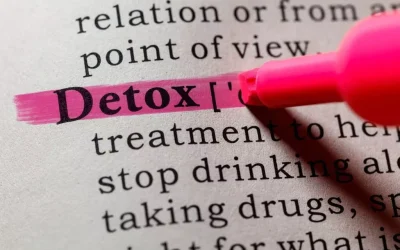Alcohol Poisoning: Symptoms, Causes, Treatments, and Prevention
Alcohol Poisoning: Symptoms, Causes, Complications, and Treatment
June 1, 20207 Best Outsourced Bookkeeping Firms for 2024
June 22, 2020Alcohol Poisoning: Symptoms, Causes, Treatments, and Prevention
The most destructive form of alcoholism is chronic alcoholism, an emotionally, socially and physically devastating disease. Alcoholism emerges from alcohol abuse, when there’s a pattern of drinking despite negative consequences. Alcoholism and alcohol abuse are both categorized as alcohol use disorders—affecting people of all ages and stages of life.
- Know the who, what, where and when as they head out the door.
- Any information published on this website or by this brand is not intended as a substitute for medical advice, and you should not take any action before consulting with a healthcare professional.
- To get assistance finding treatment programs that fit your needs, contact a treatment provider to learn more about your options.
Alcohol Poisoning Diagnosis

If the depressant effects begin affecting key functions of your body, like your breathing and consciousness, it’s considered alcohol poisoning. Every person is different, so there’s no way to know how much you can drink before you’re at risk of alcohol poisoning. Alcohol poisoning happens when excess alcohol in your bloodstream starts affecting life-supporting functions, like your breathing, heart rate and consciousness. Alcohol poisoning can be life-threatening and needs immediate medical care.
Alcohol Use Disorder: What It Is, Risks & Treatment – Cleveland Clinic
Alcohol Use Disorder: What It Is, Risks & Treatment.
Posted: Wed, 02 Jun 2021 07:00:00 GMT [source]
Finding Detox and Treatment
Of course, not every drink is going to lead to alcohol poisoning, but it’s still important to understand that it can be serious. So if you find that a glass or two turns into a bottle or more, you might want to take a hard look at your drinking habits, Dr. Andrews suggests. Asking for help can be scary, stages of alcohol intoxication especially if you’re not sure what treatment can entail—but there are people who are experienced in substance use disorders who are ready to support you. It’s pretty common to feel a little barfy after downing too much booze, but vomiting is one of the first signs that someone has had too much to drink.
Westfield Health Bulletin: Be aware of alcohol’s dangers, help children make good decisions
To get assistance finding treatment programs that fit your needs, contact a treatment provider to learn more about your options. While residents of Philadelphia are seeing a much-needed boost in funds toward vital community programs like substance abuse treatment, millions of other Americans around the country are still in need of assistance. People Magazine reported that Amy Winehouse was already struggling with drug and alcohol addiction when she first rose to prominence in her early 20s.
- There are inpatient and outpatient options, but an addiction specialist should determine the best level of care for you based on your individual needs.
- Several well-known criteria can be used to establish a probable diagnosis.
- Dialysis, a process by which blood is filtered of waste and toxins, may be necessary in severe circumstances.
- Even when the person is unconscious or stops drinking, the stomach and intestines continue to release alcohol into the bloodstream, and the level of alcohol in the body continues to rise.
- The legal blood alcohol concentration (BAC) for intoxication is 0.08% or greater, per the NIAAA.
- Vital measures include heart rate, breathing rate, oxygen level, temperature, blood pressure, and blood sugar, and indicate how far from baseline a person may be.
Who May Be at Risk?

Or find out more about how our symptom checker works before you try it for yourself. The time it takes alcohol to both have an impact and subsequently leave your system can depend on many factors, such as your weight and how many drinks you’ve had within a given time. By Buddy TBuddy T is a writer and founding member of the Online Al-Anon Outreach Committee with decades of experience writing about alcoholism. Because he is a member of a support group that stresses the importance of anonymity at the public level, he does not use his photograph or his real name on this website.
When you have alcohol in your system, you may also experience vasodilation (widening of the blood vessels), which decreases blood pressure. Vasodilation also causes blood to rush to the skin, potentially leading to hypothermia. These are often overlooked, perhaps because people just consider them indications of being “drunk” (i.e., they perceive the condition as impaired, but not serious). But it’s important to know that, at this stage, the situation can progress rapidly. Because the amount of alcohol needed to reach various states of intoxication can vary depending on the individual, what might be a fatal dose for one person may not be for another. If you or someone you know is struggling with a substance use disorder and are in need of help, finding treatment can feel like a difficult task.
- Having too much alcohol in your blood stops your body working properly and can be life-threatening.
- In some systems, these effects are facilitatory, and in others inhibitory.
- When this happens, your body might go from taking 12 to 20 breaths per minute to less than eight breaths.

